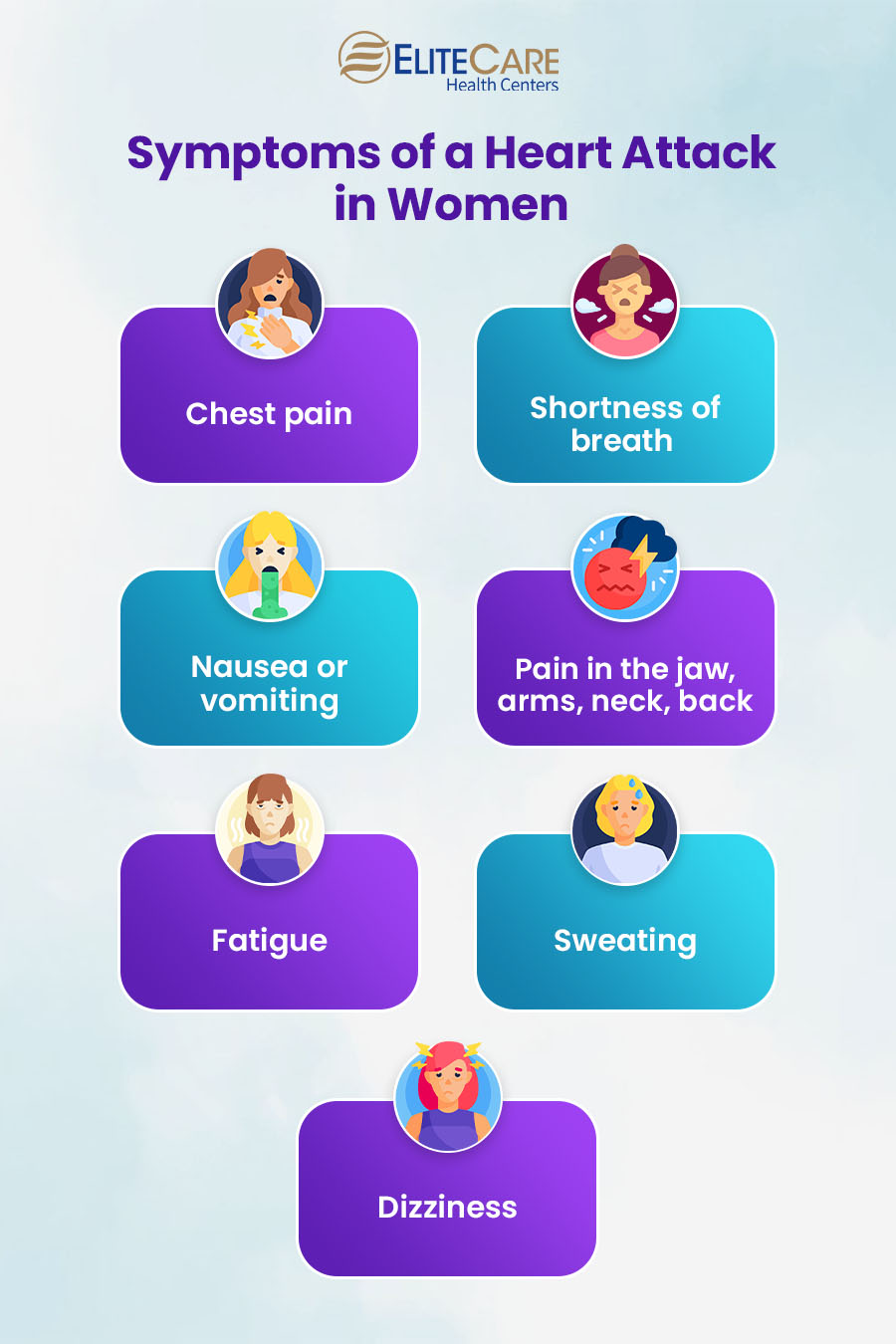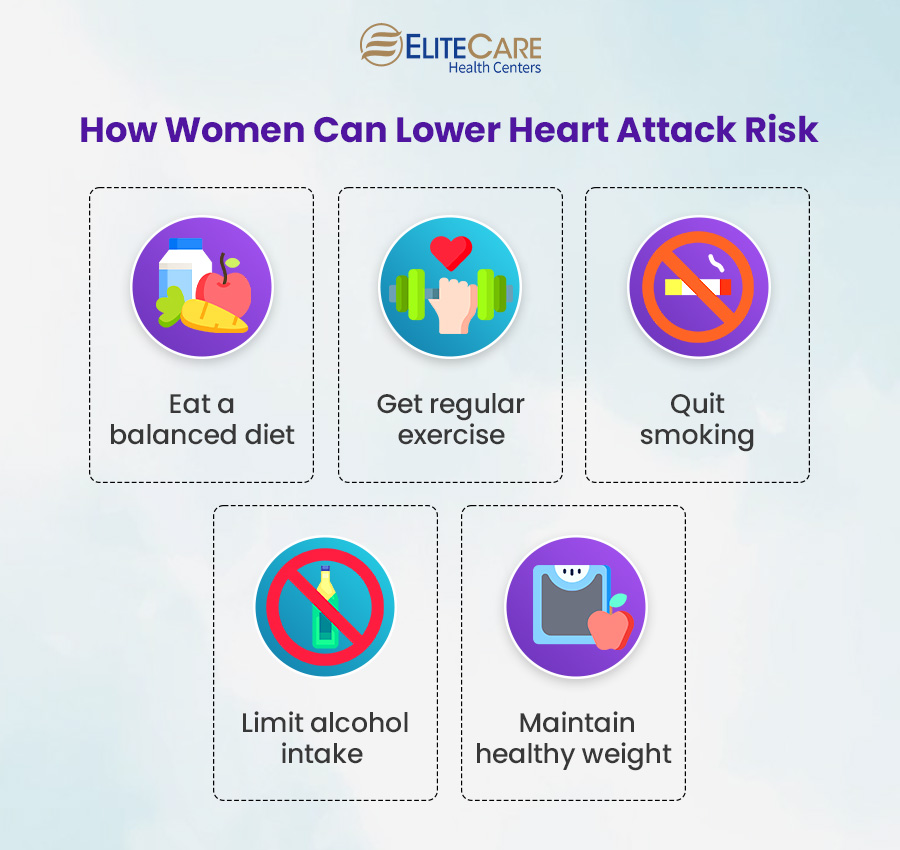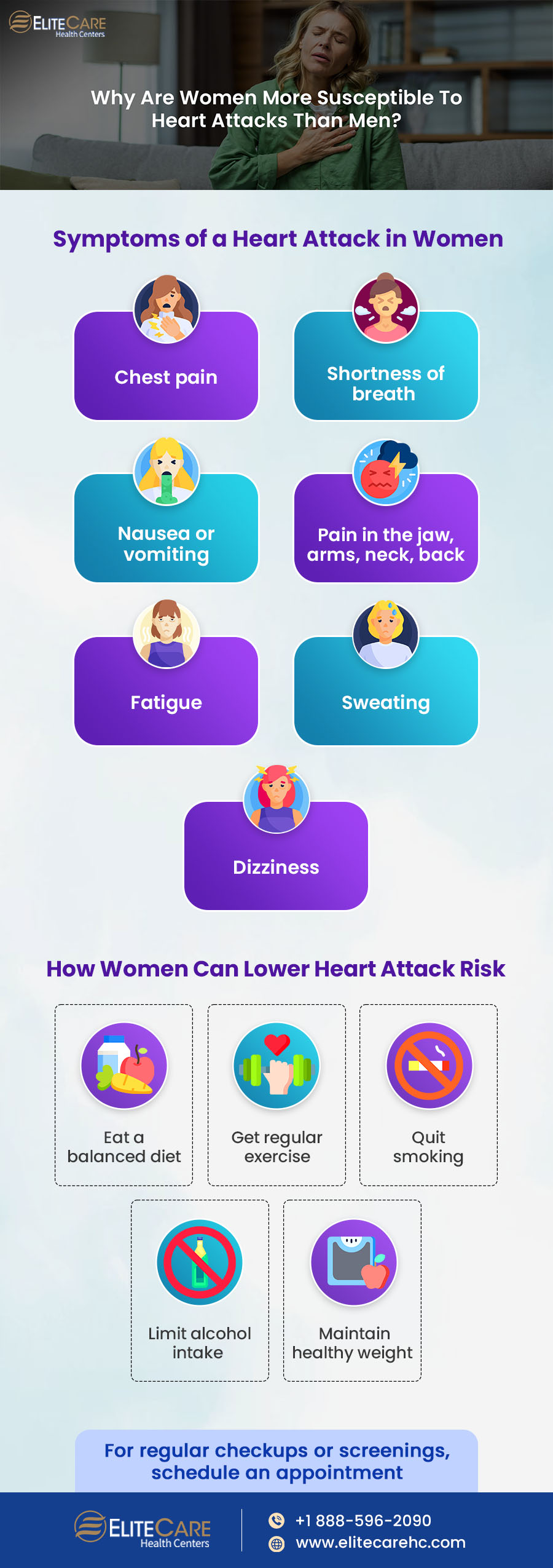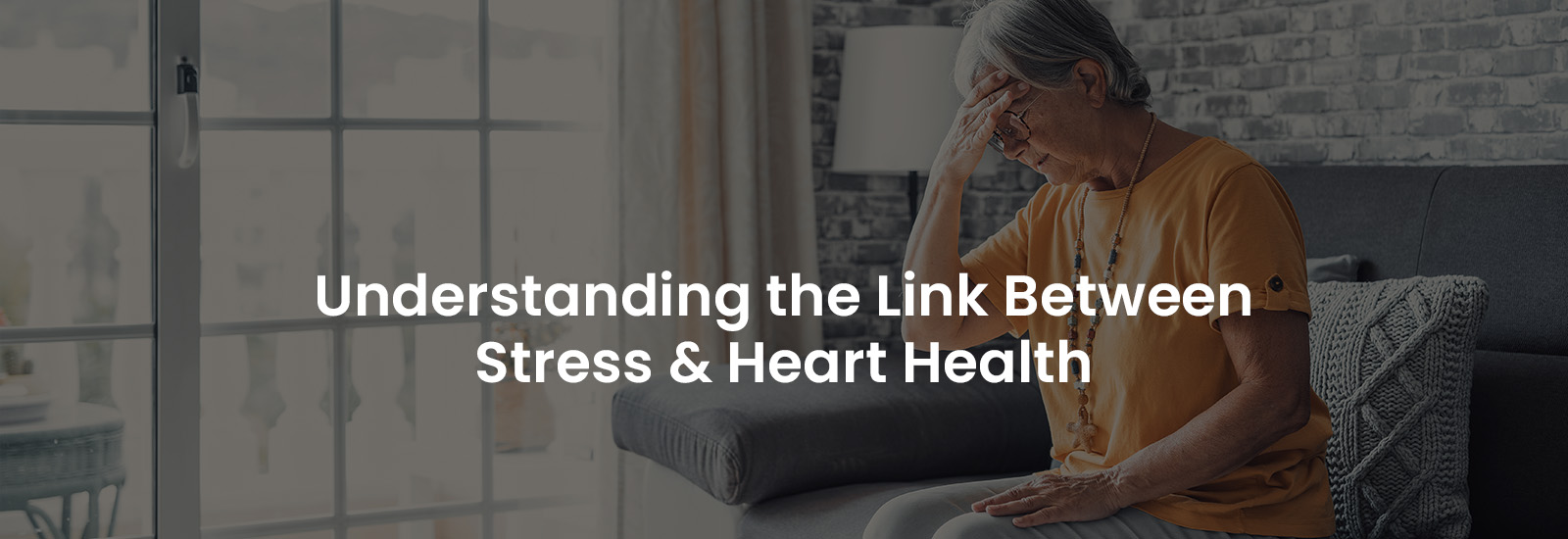
Heart disease is a serious problem that affects a significant number of women in the United States. It is the leading cause of mortality in women, claiming more lives than all forms of cancer combined. Approximately 44% of American women have been diagnosed with some form of heart disease, which can increase their likelihood of experiencing heart attacks1. While many people associate heart attacks with men, women are just as susceptible to this potentially fatal health complication. In this blog, we will explore what causes heart attacks in women, their risk factors and ways on how to reduce the likelihood of suffering from one.
What Is a Heart Attack?
A heart attack, also known as a myocardial infarction (MI), is a serious medical condition that occurs when blood flow to a part of the heart is blocked. The heart is responsible for pumping blood to the rest of the body. It receives its blood supply from the coronary arteries, which are located on the surface of the heart. When one of these arteries becomes narrow or blocked, it hampers blood flow and causes a heart attack. Blockages are typically caused by the buildup of cholesterol and other substances in the walls of arteries.
During a heart attack, the heart muscle begins to die due to the lack of oxygen-rich blood. The severity of the damage depends on how long the blood flow is blocked and the size of the affected area. In some cases, the damage can be minor, while in others, it can be severe, and the person may require immediate lifesaving medical intervention.
Symptoms of a Heart Attack

Some of the most common symptoms of a heart attack in women include:
- Chest pain or discomfort
- Shortness of breath
- Nausea or vomiting
- Pain in the jaw, arms, neck, or back
- Fatigue
- Sweating
- Dizziness or lightheadedness
It’s important to note that women usually experience different symptoms than men, which can make it more challenging to diagnose a heart attack. They are more likely to have atypical symptoms like fatigue and nausea which can be mistaken for other conditions.
If a loved one is experiencing any of these symptoms, it’s crucial to seek medical attention immediately. Early diagnosis and treatment can significantly improve the chances of survival and recovery.
Risk Factors for Heart Attack
Several risk factors can increase women’s likelihood of suffering from heart attacks. These include:
Age
As women get older, the risk of developing heart disease increases. Women over the age of 55 have a higher likelihood of experiencing a heart attack.
Genetics
Women with a family history of heart disease are at a higher risk of developing the condition themselves. This risk is even higher if the family member had heart disease at a young age.
Chronic health conditions
High blood pressure and high cholesterol are significant risk factors for heart attack in women. High blood pressure can damage the arteries, making them more susceptible to blockages. Whereas high levels of LDL or “bad” cholesterol can lead to the buildup of plaque in the arteries.
Smoking
Smoking is also an important risk factor as the toxins in cigarette smoke can damage the arteries and increase the risk of blood clots.
Obesity
Women who are overweight or obese are more likely to experience heart attacks as excess weight puts a strain on the heart and worsens preexisting health conditions like high blood pressure and high cholesterol.
Moreover, the use of certain hormonal contraceptives such as birth control pills or hormone replacement therapy (HRT) administered to menopausal women can increase the risk of blood clots, which can lead to heart attacks in women who are already at risk. It is essential to discuss the risks and benefits of these treatments with a healthcare provider.
Around 23% of women aged 45 and above succumb to heart disease within a year of suffering from a heart attack. Given such a poor survival rate, women need to take immediate measures to reduce the risk of heart attacks as they grow older.
How to Lower the Risk of Heart Attacks

There are several steps that women can take to improve their heart health and reduce the risk of heart attacks:
- Eating a balanced diet that includes plenty of fruits, vegetables, whole grains, lean protein, and healthy fats can help lower the risk of heart attacks.
- Engaging in regular physical activity can significantly help improve heart health. Barring any preexisting health conditions, women should aim for at least 150 minutes of moderate-intensity aerobic activity per week. *Please consult a physician or trainer before starting any new exercise regimen.
- Quitting smoking can help reduce the inflammation in the lining of the blood vessels which leads to plaque buildup. It can also help lower blood pressure.
- Limiting alcohol consumption can lower the levels of triglycerides and reduce the risk of arrhythmia and related heart diseases. It is advisable for women to limit their alcohol intake to one drink per day.
- Maintaining a healthy weight can also reduce the likelihood of suffering from chronic health conditions like high blood pressure, high cholesterol and diabetes which can increase the risk of suffering from heart attacks.
Additionally, it is crucial for women to get routine health checkups and screenings to monitor heart health and detect any functional abnormalities early on when they are still treatable. Early diagnosis can significantly improve the effectiveness of medication and treatment administered by physicians.
Conclusion
According to research, the risk of women developing heart failure or dying within five years after their first severe heart attack is 20% higher than that compared to men. This could be attributed to the various biological differences between the two genders. Women, for instance, have smaller coronary arteries than men, which can make them more susceptible to blockages. Moreover, age-related decline in estrogen levels can also increase their risk of developing cardiovascular diseases including heart attacks. Therefore, it is important for women who are at risk to make a concerted effort towards improving their health in order to prevent heart attacks and subsequent recurrences.
If you or a loved one is at risk for heart diseases, visit the nearest EliteCare Health Centers clinic for EKG test and screenings to regularly monitor heart health. EliteCare is one of Florida’s best medical clinics, with a team of highly trained primary care physicians who offer services like venipuncture, women’s wellness exams, preventative care and more. Visit our website to schedule an appointment. Today.






